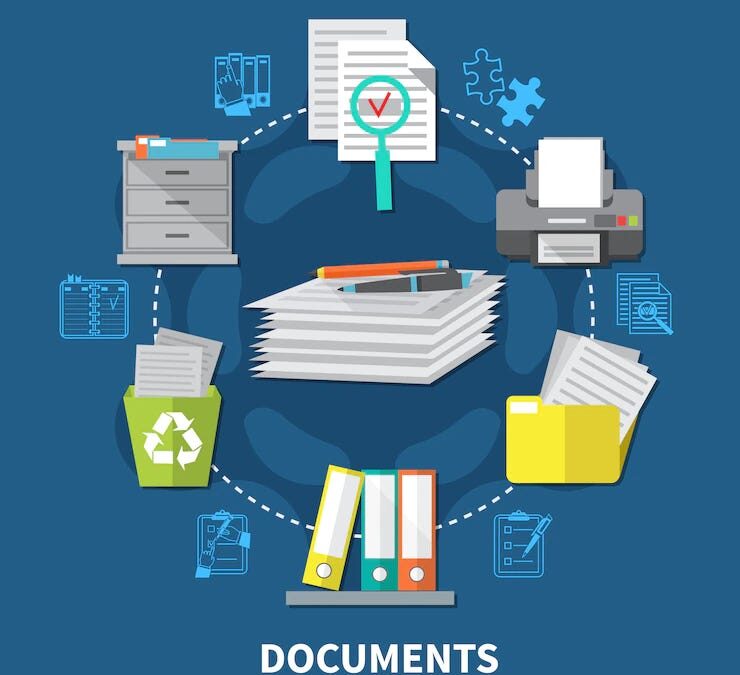 QuickBooks is the “800 pound gorilla” of small business accounting systems, and is heavily used for law firm accounting in many law firms. This application has dominated the small business marketplace for over 25 years, and is a favorite among CPA’s, due to its large base of trained users and Intuit’s inclusion of “accountant-friendly” features in all of the product’s versions (Intuit is the developer of QuickBooks). QuickBooks’ key marketing strategy from the earliest days of its existence was to win customers by appealing to the CPA community that largely serves small business customers. This strategy has been wildly successful.
QuickBooks is the “800 pound gorilla” of small business accounting systems, and is heavily used for law firm accounting in many law firms. This application has dominated the small business marketplace for over 25 years, and is a favorite among CPA’s, due to its large base of trained users and Intuit’s inclusion of “accountant-friendly” features in all of the product’s versions (Intuit is the developer of QuickBooks). QuickBooks’ key marketing strategy from the earliest days of its existence was to win customers by appealing to the CPA community that largely serves small business customers. This strategy has been wildly successful.
As our colleague Debbie Schaeffer frequently points out in her speeches and articles,
“Many accountants are familiar with QuickBooks, and therefore are very quick to recommend their clients use the accounting software to manage all of their businesses’ billing and accounting needs. That does not mean it is the best solution for legal billing”.
Law firms are not the same as other small businesses, however, and have some distinct accounting needs that set them apart. In many instances law firms using QuickBooks wind up with the proverbial “square peg in a round hole” dilemma, and need to reconcile their need for specific functionality against their CPA’s insistence on using QuickBooks to facilitate year-end tax filings.
Some of the specific features needed for efficient law firm accounting, which are notably absent in QuickBooks, include the following:
- Trust accounting compliance – law firms are required by law to segregate and carefully manage trust funds, and account for all monies received and disbursed in detail.
- Retainer tracking – client retainer balances need to be tracked against specific matters, and replenishment requests should be generated automatically based on defined minimum balances for each matter covered by a retainer.
- “Hard cost” pass-throughs – expenses incurred and paid for by the firm on behalf of a client’s matter need to be converted to billable costs, applied to a matter, and invoiced to the client.
Beyond these specific law firm accounting feature requirements, there are some more general issues with QuickBooks’ software design that, in some instances, can create headaches for a law firm’s accounting records:
- Cash vs. Accrual Accounting –While QuickBooks allows its reports to display data in either a Cash Basis or Accrual Basis format, the application itself tends towards Accrual Based accounting. Since most small law firms maintain a cash-based accounting system, this creates extra work at year-end for the firm’s accountants. Generally, accountants that prepare your taxes don’t even use QuickBooks to do that preparation, they simply export the data to their tax preparation program. Why would you work your entire year in an application format that doesn’t meet your needs, just to allow your tax preparer to avoid making a manual one-time journal entry?
- Check Voiding – checks issued are an integral part of a business’s audit trail, and data relating to those checks should be maintained for audit purposes. In QuickBooks a message will appear when voiding a check, asking the user IF they want QuickBooks to create a reversing entry in the current period. Hopefully, the user knows enough to do that. Other programs simply enter the reversing entry.
- Year-End Closing – Once a firm’s accounting records have been reviewed and tax returns prepared, those accounting records should be “closed” (i.e., stored as read-only transactions) to prevent any modifications to those transactions once final tax returns have been filed. QuickBooks has no required year-end closing procedures, Transactions that have been reported on tax returns can be subsequently altered, destroying the tax return’s audit trail.
- QuickBooks uses a confusing posting method for undeposited funds. “Undeposited funds” is a bucket that catches all operating and trust payments in one place, making it easy to take the payment into the wrong account. If you ever had to undo these transactions, you know that this is an accounting nightmare.
- If a law firm requires trust accounting, it is difficult to track the amounts assigned to a specific case or matter. Some firms create specific general ledger accounts to accomplish this. However, bear in mind that QuickBooks and QuickBooks Online versions– in their more ‘basic’ editions – have a limit of 250 general ledger accounts.
- If QuickBooks is used for billing, only current charges can be shown on invoices. If a firm needs to show previous balances, accounts receivable transactions, and/or a total balance due, they must generate and send statements to their clients as well. Further, neither invoices nor statements will show any trust activity.
For all of the above reasons, our company has been reluctant to endorse QuickBooks for our law firm clients. We generally recommend one of two accounting software alternatives to clients that want to avoid the headaches that QuickBooks may cause:
- Install an accounting product that addresses the deficiencies in QuickBooks as outlined above. We believe that Sage 50 Accounting meets this need rather well, in that it:
- Can be set up on either an accrual OR a cash basis and accurately show data in their reports;
- Has a check voiding process that does not delete anydata, but allows for the void to be posted as a separate transaction, dated properly, and stored as a permanent record;
- Provides a “hard close” for year-end processing, locking transactions in closed fiscal years from any further edits or deletions.
- is very easy to deposit your funds without the extra undeposited funds layer.
- , allows you to add a vendor or chart of account number on the fly When entering a payment.
- Use legal-specific accounting software, as embodied in various time billing and practice management systems such as Caret Legal, Cosmolex, PC Law, Soluno, Timeslips, and others, who have developed software specifically for law firms, and which address those specific accounting needs.
Lawyers have enough to worry about these days without having to deal with the consequences of an IRS or a state bar association audit. There are multiple product options in the software marketplace these days that can protect your accounting records and provide better tools for managing your finances. Do your firm a favor and check them out. We can help with that.
Have questions about accounting software products? Want to explore your options for moving from QuickBooks? We have been advising law firm clients for over 30 years, and can make “product-agnostic” software recommendations based on your firm’s specific needs. Give us a call at 877-375-2810 or email us at [email protected].

Jack Schaller has been active in the field of law office technology since 1989, and has worked with a variety of commercial accounting, legal billing, practice management, and document management software products during his twenty plus years in the software consulting field. During his tenure as a software consultant he has garnered many sales and service awards for his work with legal software products. Jack is a frequent presenter at legal conferences and seminars, and is a regular contributor to TechnoLawyer and other technology publications.



